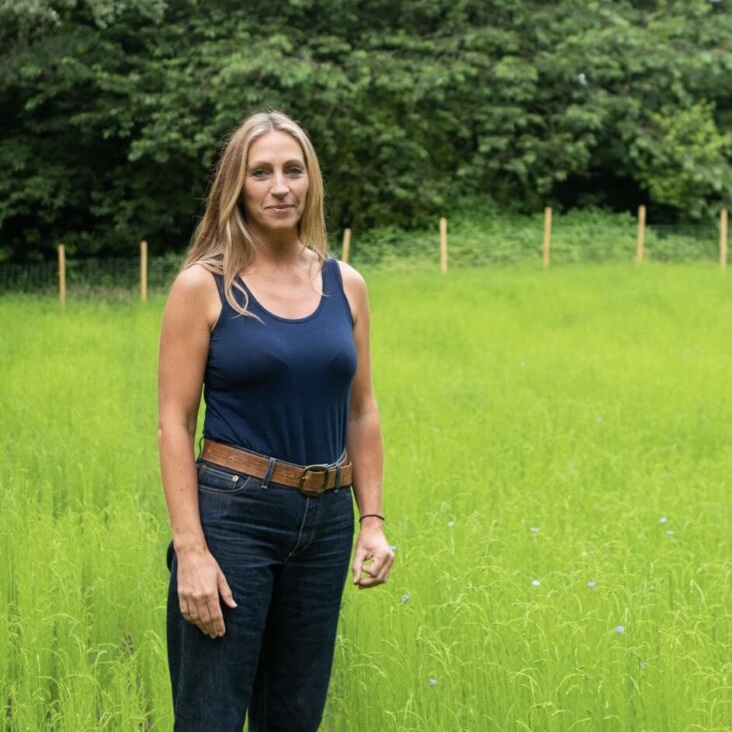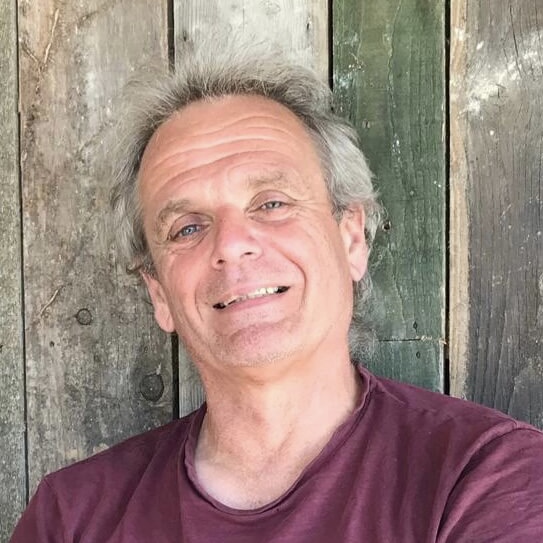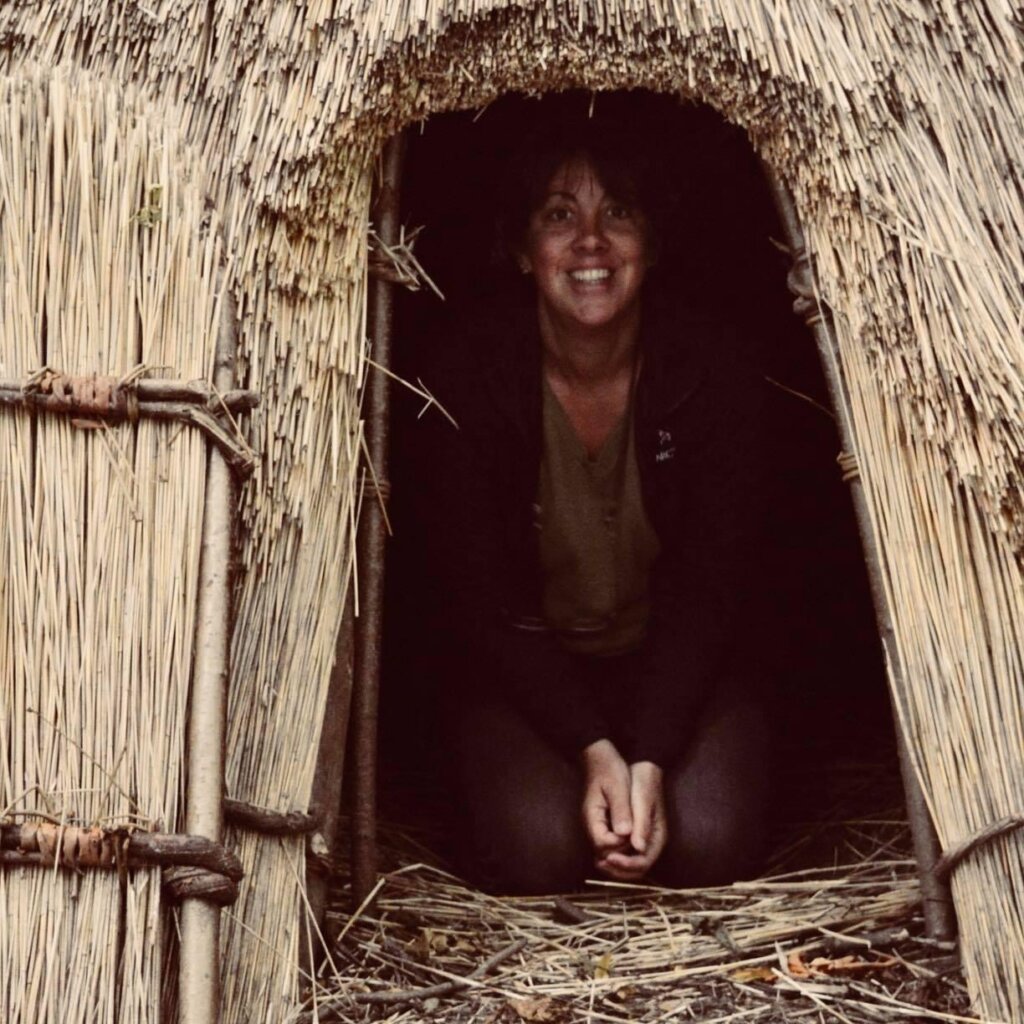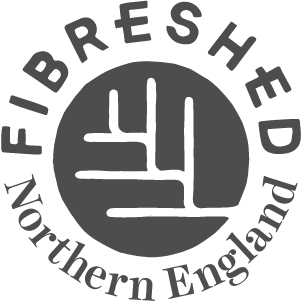After 3 years volunteering as founder/coordinator of North West England Fibreshed and working solo to build awareness of Fibershed principles amongst textile professionals in the region and beyond, I’m happy to say I’m now collaborating with two brilliant colleagues based in the North East to create a larger Northern England Fibreshed.
I’d like to acknowledge the support I’ve had during this time including all those both regionally and internationally within the Fibershed organisation who’ve taken part in online and in-person meetings, especially members of our directory who’ve shared their local know-how and passion for ecologically restorative textiles.
In particular, a huge thanks goes to my friend Patrick Grant, without whose inspirational example I probably wouldn’t have taken on this challenge. Patrick’s willingness to collaborate with me and the SuperSlow Way team on the Homegrown Homespun project has brought this cause to a far wider audience – he even introduced King Charles to Fibershed back in 2020!
Three years in and NWEF have 3400+ instagram followers and wonderfully engaged audiences on Twitter and Facebook, many of whom are still following our journey to bring locally grown indigo linen jeans to market via Patrick’s social enterprise Community Clothing. The rationale behind the HH collaboration was to help our regional producers access natural dye facilities at scale by incentivising synthetic dye factories to begin transitioning to renewable alternatives. Great progress has been made in this regard and there is now at least one commercial dyer able to use all three ‘grand teints’ including the more challenging indigo. I’ll be sharing an update on other exciting developments in my next post that’s dedicated to the project.
NWEF have been featured in local and national press multiple times, most notably on the ‘Field to Fashion’ episode of BBC 1’s Countyfile and Radio 4’s Open Country ‘A Fabric Landscape’ show. It’s great that by the completion of our collaboration at the British Textile Biennial this October, we’ll have an even bigger community of like-minded creatives working towards the highest Climate Beneficial™ standards.



Introducing…
Mark Palmer has spent a lifetime in the food and farming industry. Originally from Wiltshire, he completed a degree in Agriculture at the University of Reading in 1986 and was initially involved in conventional farm management. He progressed to advising and managing a 400 acre organic vegetable farm in North Yorkshire, also working internationally with select crops while packing and processing vegetables for his own business.
In 2015 Mark started working for the Soil Association as an inspector covering the North of England and Scotland, visiting and auditing all types of businesses from field to fork. He’s qualified to complete Red Tractor and Pasture for Life inspections and with his own company, Systems4Food he offers organic inspections, farm sustainability audits and advisory work helping farms progress down the agroecological pathway.
He advised us how best to grow woad during phase 2 of the Homegrown Homespun project and helped design and test the pigment extraction kit. Due to the many lessons learnt during this process, we’ve since founded Homegrown Colour to continue exploring the upscale of British indigo and are trailing a one acre crop with an organic farmer during 2023.
Mark’s in-depth knowledge of Climate BeneficialTM growing principles will help British Fibreshed’s to create a verification process that’s equivalent to the USA’s but that is more appropriate to our ecology. With our ethics firmly grounded in soil health and biodiversity, we believe that in collaboration with the other UK Fibresheds, this will become the new benchmark for regenerative clothing in this country.
Anita Radini is an Italo-British Archaeobotanist and Experimental Archaeologist. She studied Natural Sciences and then Archaeology and her area of research concerns the complex interaction between people and the natural and built environments.
In over 15 years of Arcaheobotanical work, Anita has become interested in the loss of knowledge concerning the use of traditional natural materials in material culture as well as the disappearance of many varieties of plants used by people in the past. She also has a strong interest in the sustainability and ethically correct sourcing of raw material used in Archaeology for experimental purposes.
In 2020 Anita began to grow flax at her allotment and since then, with Mark, has scaled up her crop. She is particularly interested in the open access seeds libraries and bringing back some forgotten varieties of flax. She now divides her time between North Yorkshire and Dublin for her new role as Ad Astra Fellow at UCD School of Archaeology, where she’s been awarded the prestigious Dan David Prize in recognition of her pioneering research highlighting the labours of the often invisible craftspeople and workers behind history’s ancient monuments and artwork. There she continues her work on under-used and almost lost varieties of flax and plant dyes. Anita believes that ancient and traditional crafts and small scale agriculture have great potential in reconnecting us to the environment. She will bring to Fibershed her knowledge of past traditions and her network in the University, Museums and Re-enactment sectors.
Launching the Northern England Fibreshed
We feel we have a dynamic combination of skills covering the many different aspects of textiles as agriculture, academia and craft and are excited to announce that we’ve been invited to launch this new iteration of the Northern England Fibreshed during this October’s British Textile Biennial. We’re now inviting local textile growers, makers and educators to read through our criteria then apply to join our Producer’s Directory. There will be an opportunity for those with Fibreshed standard products to collaborate on this event.
It will take some time to update our website and social media platform but please note that our new region will cover both North West and North East England so please get in touch if you’re growing or making textiles using local, natural fibres and dyes and are based in one of the following counties:-
- Cumbria
- Lancashire
- Merseyside
- Cheshire
- Greater Manchester
- Yorkshire (North, East Riding, South and West)
- Tyne and Wear
- Northumberland
- County Durham
